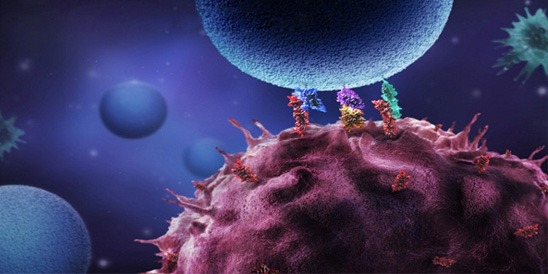
Immunotherapy is an advanced approach to cancer treatment under Dr. Joydeep Ghosh, an esteemed oncologist based in Kolkata. Immunotherapy is reshaping the landscape of cancer care by using the body’s natural defence mechanisms to combat the disease.
Immunotherapy, or Biological Response Modifier (BRM) therapy, is a revolutionary treatment that enhances the body’s immune system to target and destroy cancer cells. Unlike traditional chemotherapy treatments, which directly attack cancer cells, immunotherapy strengthens the immune system to recognize and eliminate cancer cells more effectively.

Immunotherapy is an advanced approach to cancer treatment under Dr. Joydeep Ghosh, an esteemed oncologist based in Kolkata. Immunotherapy is reshaping the landscape of cancer care by using the body’s natural defence mechanisms to combat the disease.
Immunotherapy, or Biological Response Modifier (BRM) therapy, is a revolutionary treatment that enhances the body’s immune system to target and destroy cancer cells. Unlike traditional chemotherapy treatments, which directly attack cancer cells, immunotherapy strengthens the immune system to recognize and eliminate cancer cells more effectively.
What Does Immunotherapy Treat?
Immunotherapy has successfully treated various types of cancer, including melanoma, lung cancer, bladder cancer, and certain types of leukaemia and lymphoma. Dr Joydeep Ghosh tailors immunotherapy treatment plans based on individual patient profiles, ensuring a personalized and targeted approach.
What to Expect from Our Immunotherapy?
Understanding the Immune System Boost
Immunotherapy cancer treatment boosts the body’s immune response, making it capable of identifying and attacking cancer cells more effectively. Understanding how this treatment works is vital for patients to participate in the process actively.

Identification of Biomarkers
Dr. Joydeep Ghosh and his team may perform tests to identify specific biomarkers that indicate the potential responsiveness of a patient to immunotherapy. This approach ensures that treatment is tailored to each patient’s genetic makeup.

Administration Methods

Immunotherapy is administered through various methods, including intravenous infusions, oral medications, or injections. The chosen method depends on the specific type of immunotherapy prescribed for the patient.
Potential Side Effects
While immunotherapy generally causes fewer side effects than traditional treatments, patients may experience immune-related side effects. These can include fatigue, skin reactions, and inflammation. Proper communication with the healthcare team helps manage and address these effects.

Constant Response Monitoring
Regular monitoring of a patient’s response to immunotherapy is essential. Dr. Joydeep Ghosh adjusts the treatment plan based on the patient’s progress, ensuring the most effective approach to cancer care.

Things to Know About Immunotherapy
Part of Combination Therapies
Immunotherapy can be combined with other cancer treatments, such as chemotherapy or targeted therapy, to increase effectiveness. Dr. Joydeep Ghosh carefully assesses the patient’s case to determine the optimal combination.

Durability of Treatment Impact
Immunotherapy can lead to durable responses, with some patients experiencing long-term remission. Understanding the potential for sustained benefits is crucial for patients undergoing immunotherapy.

Alternative Treatment Options
Immunotherapy has alternative treatment options such as CAR T cell therapy, oncolytic virus therapy, and more for patients who fail to respond well to conventional therapies. Dr. Joydeep Ghosh explores these innovative options to provide comprehensive, advanced cancer care.

Immunotherapy at Dr. Joydeep Ghosh’s practice presents a tailored and individualized method for cancer treatment in Kolkata. By focusing on the unique molecular features of each patient’s cancer, this groundbreaking approach strives to optimize efficacy while reducing potential side effects. It’s time to embrace the next frontier in cancer care with Immunotherapy, where precision meets progress, offering a promising avenue for advancing personalized treatment strategies.



